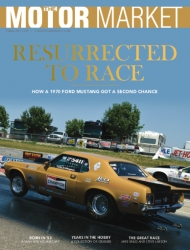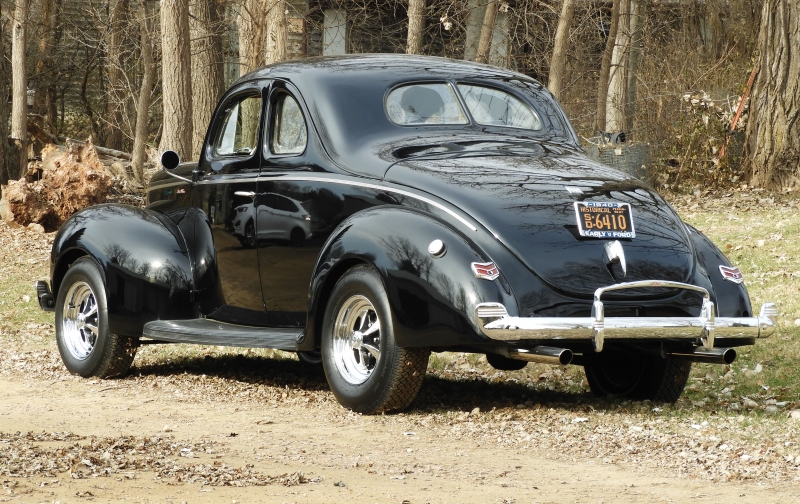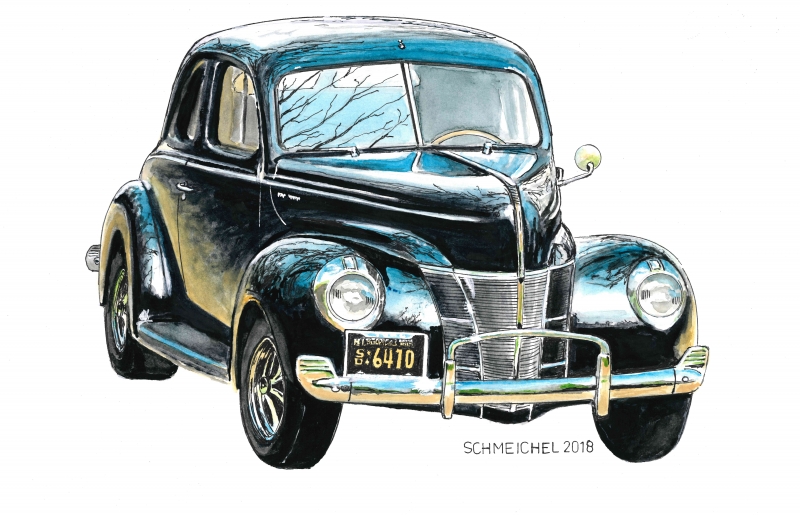More Issues
- August 2023
- September 2021
- August 2021
- July 2021
- June 2021
- May 2021
- April 2021
- March 2021
- February 2021
- January 2021
- December 2020
- November 2020
- October 2020
- September 2020
- August 2020
- July 2020
- May 2020
- April 2020
- March 2020
- February 2020
- January 2020
- December 2019
- November 2019
- October 2019
- September 2019
- August 2019
- July 2019
- June 2019
- May 2019
- April 2019
- March 2019
- January 2019
- December 2018
- November 2018
- October 2018
- September 2018
- August 2018
- July 2018
- June 2018
- May 2018
- April 2018
- March 2018
- February 2018
- January 2018
Emotional Preservation
Written By: Bob Schmeichel
If you read any kind of car magazine stuff today, you will notice the term “barn find” is catching on in a frenzy all over the world. I have seen the term used from a rather broad perspective, with finding an old vehicle that doesn’t have very high appeal or value, to finding something really rare and highly sought after that is valuable. The people making this type of claim are a new breed of antique hunters loving what they find. Usually these types of vehicles are still pretty intact, with everything used to build them however the trend was before they were last driven or raced, and then put in some sort of storage building to keep for another time. Quite often they were stashed away with the idea of becoming a future project that loomed too long with the interest going away due to lack of funds, or a death.
What makes these vehicles so elusive to find is the fact that they are like a time capsule of someone’s car passions in the past. I have personally seen many cars lost in garages for years in Sioux Falls because of trees growing in front of the doors and forgotten about because they looked too small to hold a car. Other Sioux Falls garages have become a storage facility for junk accumulating, eventually spreading out over a vehicle stashed in a corner that became visually lost until something changes because of a death forcing a cleanout and discovery. Some vehicles sit by themselves in old lean-tos (there’s an old term for ya) or barns covered in heavy dirt, dust, bird and mouse droppings for multiple decades of seasons before they are found. Being the first to find something like this that might be desirable to you will definitely raise your blood pressure. The other might be the fact that it may not be for sale at the time, which could take the wind out of your sail, forcing you to wait for years as I have seen happen with friends. Finding old cars, buying them, driving them or rebuilding them to your liking to use or race … the bottom line is, no matter how you look at it, the car hobby can be addictive depending how far you want to take it. Ain’t it fun?
As I spoke to Jeff Christians about his 1940 Ford Deluxe coupe, I felt like his car could have been a barn find, except it was never forgotten. Jeff said as far back as he could remember in the late ‘50s and early ‘60s, his dad Elmer always had this ‘40 Ford coupe. The thing that made it unique was the fact that the car wasn’t even 20 years old when a 1956 Chevy 265” was installed in place of the original flathead V8. An old original Speedway bell housing adaptor was used, making the swap easy while still retaining the original ‘40 Ford transmission and rear end. This was a pretty common hot rod thing to do in the 1950s all over the nation, but anyone doing it had to remember that the Chevy had about twice as much horsepower as the flathead. Although the Chevy engine could wind up with higher RPM, one had to remember you could knock the transmission or rear end out if you were abusive with the clutch. Over the years I have heard of many older guys sitting on the side of the road because they got a little too aggressive with that kind of set up.
I remember Jeff’s dad, Elmer, driving this car in the late ‘60s and early ‘70s when I was getting into building street rods. It was a really nice, original appearing car he was proud of. Then he opened the hood and surprised a few of us unsuspecting street rodders. Elmer repainted the fenders on the car himself so they matched the original paint on the rest of the car and kind of slowed with driving this car as frequently while he built and drove a half dozen other street rods over the years that could take abuse to his liking. Elmer, being one of the founding members of the GPRS, loved the fact that there were others in the group that loved going fast too. Elmer passed away suddenly in 1996 and Jeff inherited the ‘40 Ford coupe that his father cherished for so many years.
A few years later, Jeff had the ‘40 Ford he decided to replace the 265 Chevy rather than rebuilding it. So he bought a new 330HP 350 Chevy crate engine from Terry Schulte Chevrolet and did some upgrades for appearance in the engine compartment along with redoing the brakes himself. Jeff, like his father, is pretty heavy into building cars and going fast in no matter what it is.
With all the rides that Jeff has to drive, he still has a soft spot in his heart for the ‘40 Ford that has been in his life for so many years. He drives it a few times a year which allows him to go back in time a bit. The car is so original yet – with only 90,000 miles on the odometer, really nice original interior, original paint on the body and date coded glass – that Jeff didn’t want to change too much with what his father had so long ago. It still has the old original trans and rear end the car came with, and it still works fine. Jeff even showed me the original 265 that was in the car as well as the original wheels he has in storage.
Because of Jeff’s sentimental attachment to the car and wanting to keep it as is, along with having no real blood relatives of his own who have an interest, Jeff tells me when he dies, the 1940 Ford Coupe will be donated to the Henry Ford Museum in Dearborn, Michigan. This will certainly portray a time capsule of hot rodding in South Dakota without ever being a barn find. Thanks Jeff!



